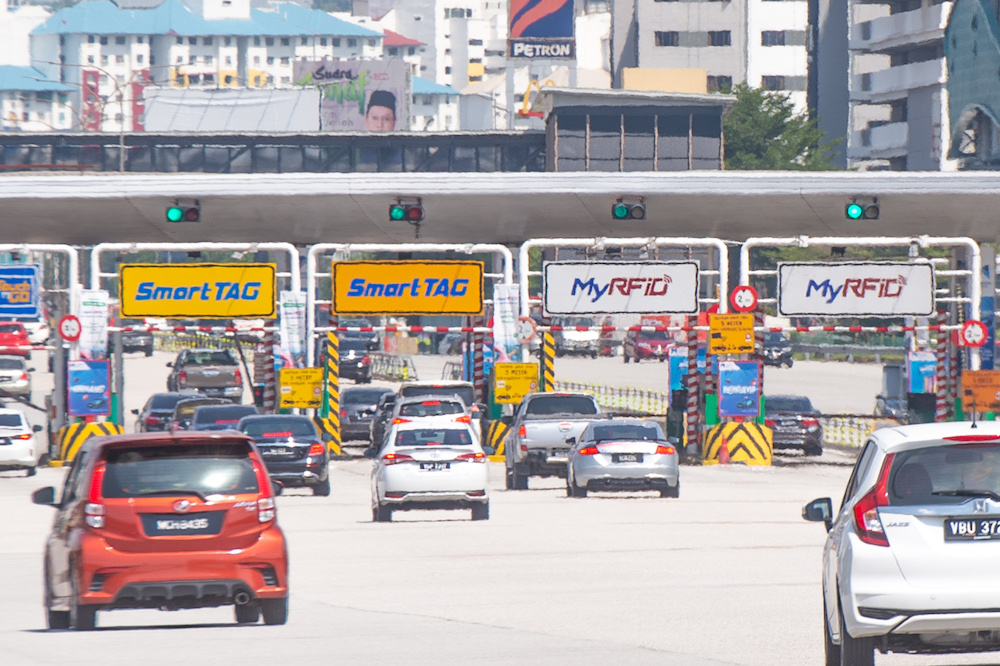KUALA LUMPUR, Jan 20 — Highway operator PLUS Malaysia Berhad has today issued a formal apology for the malfunction of its Radio Frequency Identification (RFID) system at several toll plazas earlier this week.
Acknowledging the inconvenience caused to its highway customers during the initial RFID implementation, the highway concessionaire also promised to reinstate SmartTAG lanes at several key toll plazas to address the grievances raised by affected motorists including better traffic management.
It said the proactive steps have been taken after Prime Minister Datuk Seri Ismail Sabri Yaakob’s recent announcement on RFID being offered as an option alongside Touch ‘n Go (TNG), or SmartTAG for motorists in terms of their toll payment choices.
“First and foremost, PLUS wishes to apologise to all its highway customers for the inconvenience caused as a result of the congestion during the initial implementation of the Second Public Pilot RFID along the North-South Expressway from Juru to Skudai on January 15.
“PLUS is committed to reinstate 16 toll plazas with 19 Touch ‘n Go lanes into SmartTAG lanes by January 25 in anticipation of the Chinese New Year travel exodus.
“Subsequently post CNY, on February 19, an additional 18 toll plazas will convert its 24 lanes to SmartTAG lane,” it said in a statement here.
Several toll plazas in the Klang Valley reportedly experienced traffic congestion, especially on Monday, after the RFID system failed to function smoothly.
The RFID option has co-existed with the SmartTAG and Touch ‘n Go payment options in most open toll highway networks since 2018.
The company also sought to reassure the Malaysian government that the technological enhancement will lead to a better and improved customer experience, saying it received much-needed guidance from Works Minister Datuk Seri Fadillah Yusof in a recent meeting.
In addition to the reinstatement of SmartTAG lanes, PLUS said it has mobilised round-the-clock teams to optimise existing system performance and improve detection rates at all toll plazas.
“Quicker ‘double-arm’ lane barriers will also be deployed at plazas with high traffic to ensure quick dispersal of traffic.
“Additionally, to assist our highway customers, visual RFID detection zones will be painted on the lanes to ensure customers are able to position their vehicle to ensure optimum detection,” it added.
The company also said customer service assistants have been deployed at all 158 RFID lanes across 74 toll plazas to assist affected customers.
The RFID system allows motorists to enjoy a smoother journey without having to stop, drive through the RFID lane at a speed of 30kph as well as carry out contactless toll transactions.
The RFID also offers digital cash security and cashless top-up through the use of Touch ‘n Go e-Wallet without having to go to the top-up counter.
According to PLUS, the RFID project is in line with the Intelligent Transportation System blueprint by the Works Ministry towards a congestion-free Multi-Lane Free-Flow highway eco-system.



















